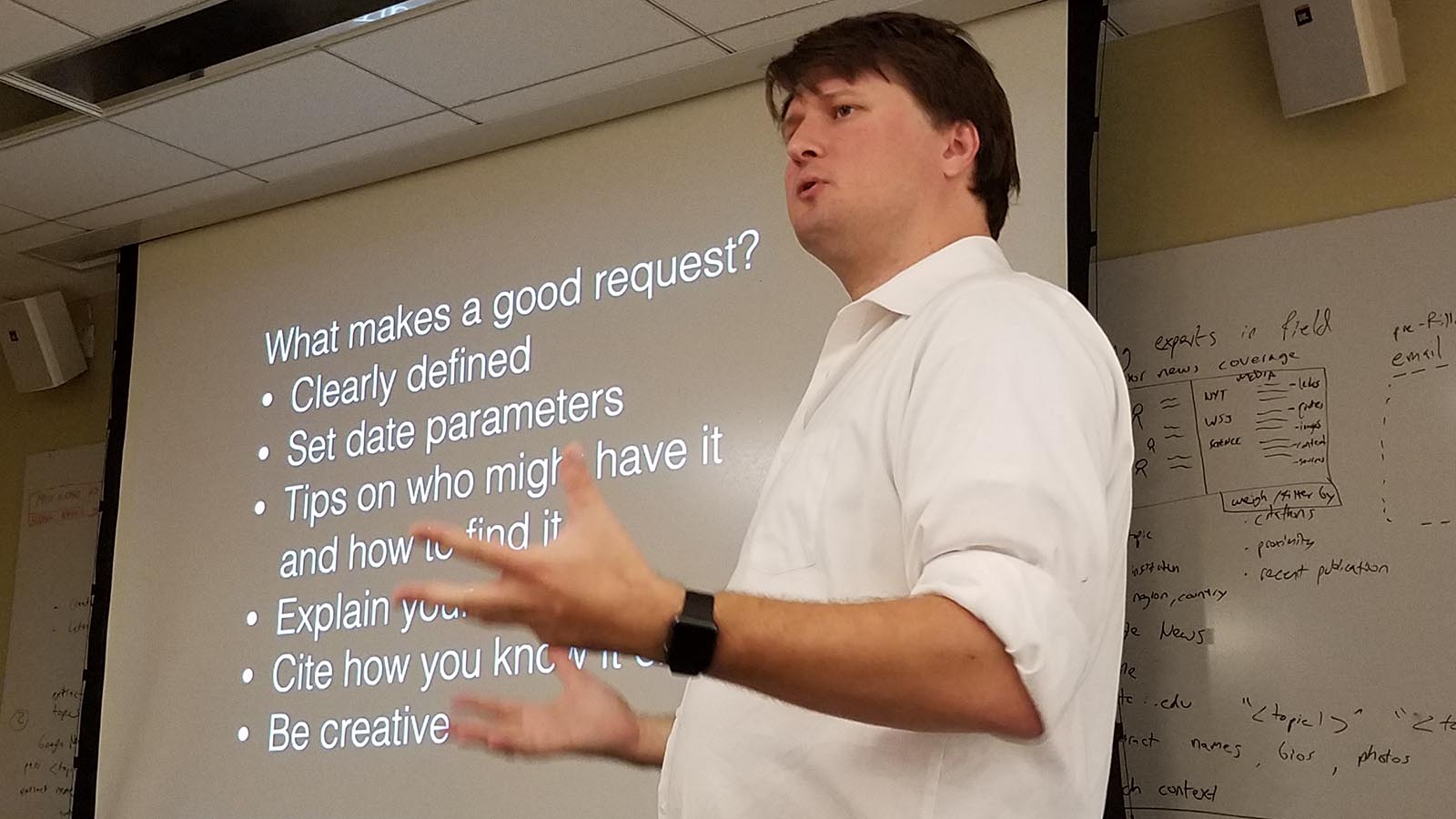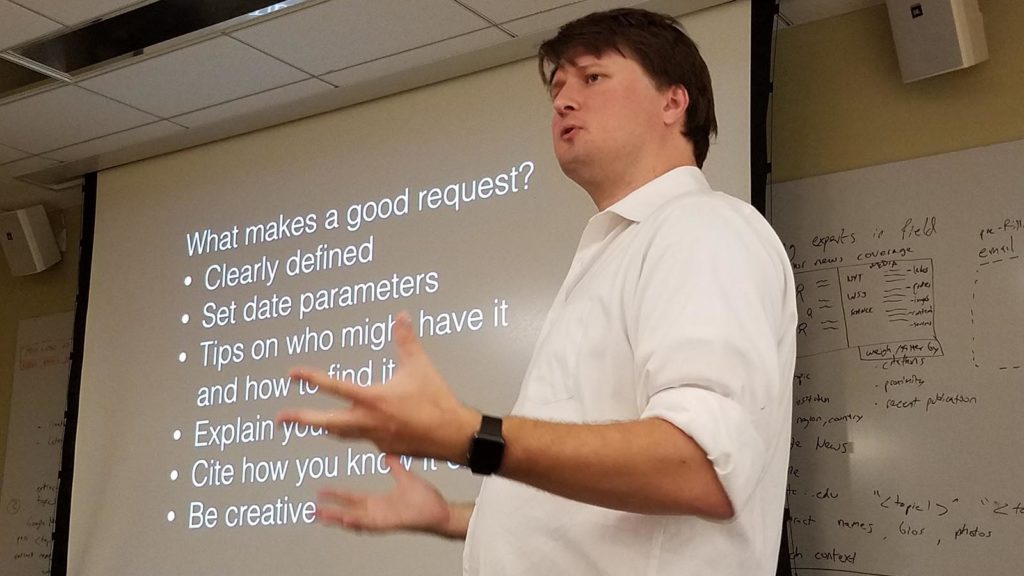
“Who’s filed a public records request before?” Michael Morisy, the founder of the investigative journalism site MuckRock, asked the KSJ fellows to kick off their Sept. 21 seminar.
About half of the 10 fellows raised their hands. Taking a quick sip from his energy drink, Morisy asked a follow-up: “For whoever filed a public records request, did it go really, really well?”
The group laughed knowingly as almost all hands descended, with a couple remaining half-raised and wavering in the classic “so-so” gesture.
The Freedom of Information Act, or FOIA, grants U.S. citizens the right to request information from the federal government. All 50 state governments have their own flavor of FOIA. But the process is notoriously slow and convoluted. The first three times he requested records as a young reporter, Morisy said, “they basically told me to bug off, and they’re not going to give me anything.”
But that didn’t discourage him, because many of the most powerful stories he read were built around information from public records requests. After interviewing more than 100 journalists across the country and finding that they shared his frustrations, Morisy founded MuckRock in 2010 with the web developer Mitchell Kotler. “We said: ‘What if we build a website that just makes FOIA as it should be? Then we’ll take care of all the messy back-end stuff and manage that process for people,’” said Morisy.
MuckRock will “even follow up with agencies,” he went on. “We’ll make sure they get the documents to come back. We’ll digitize them for you if the agency responds with paper. … We track the whole process from start to finish.”
Morisy and his colleagues have filed nearly 40,000 public records requests with more than 8,000 different agencies, and released more than 1.6 million pages to the public. Generally, when a request is fulfilled, MuckRock will immediately post the documents for public use on its website, but Morisy said exceptions can be made for journalists so they aren’t scooped before their story is published.
He offered the fellows some general advice for filing FOIA requests — with or without MuckRock. “Try to think like a FOIA officer,” he said. “They get in at 9, they want to leave at 5. They have metrics they want to hit … and so if you work with them, if you meet them halfway, they are going to do what they can to try to move your request along.”
Being as specific as possible about the location and time-stamps of documents can be very helpful, as can contacting the FOIA officer over the phone. Officials must also provide an expected completion date for all requests, so holding them to it and following up frequently can speed up the process.
Running a website to bring government information to the public comes with a unique set of challenges. “We’ve had agencies threaten to sue us,” said Morisy. “We’ve had agencies file cease-and-desist orders with us. We’ve gotten sued by companies over documents we’ve released. We’ve been threatened with jail.”
Deborah Blum, KSJ’s director, asked about another challenge in the current political climate: the trend of government agencies to withhold information that ought to be public. Morisy replied that agencies’ overall attitude about releasing data — whether through FOIA requests or on their own initiative — is getting worse. But he added that FOIA officers themselves “are more committed now than ever to their job.”
KSJ Fellow Joshua Hatch asked Morisy if he had had any trouble getting documents like emails from officials who were potentially admitting to their own wrongdoing. “Sometimes people do stuff they shouldn’t,” he replied. “I’m amazed how often people release stuff that is directly incriminating of them.”
Another fellow, Kolawole Talabi, from Nigeria, noted that “investigative journalism cuts across international borders,” and asked, “Do you have partners outside of the U.S. or an international network with your organization?” Morisy replied that MuckRock is part of the International Center for Journalists and is “close friends” with Alaveteli, a platform that helps citizens request government documents in over 20 countries.
“And then there are some people working on taking our platform and taking it into other countries,” said Morisy. “We’re happy to help people who are interested in doing that, too.”





Leave a Reply